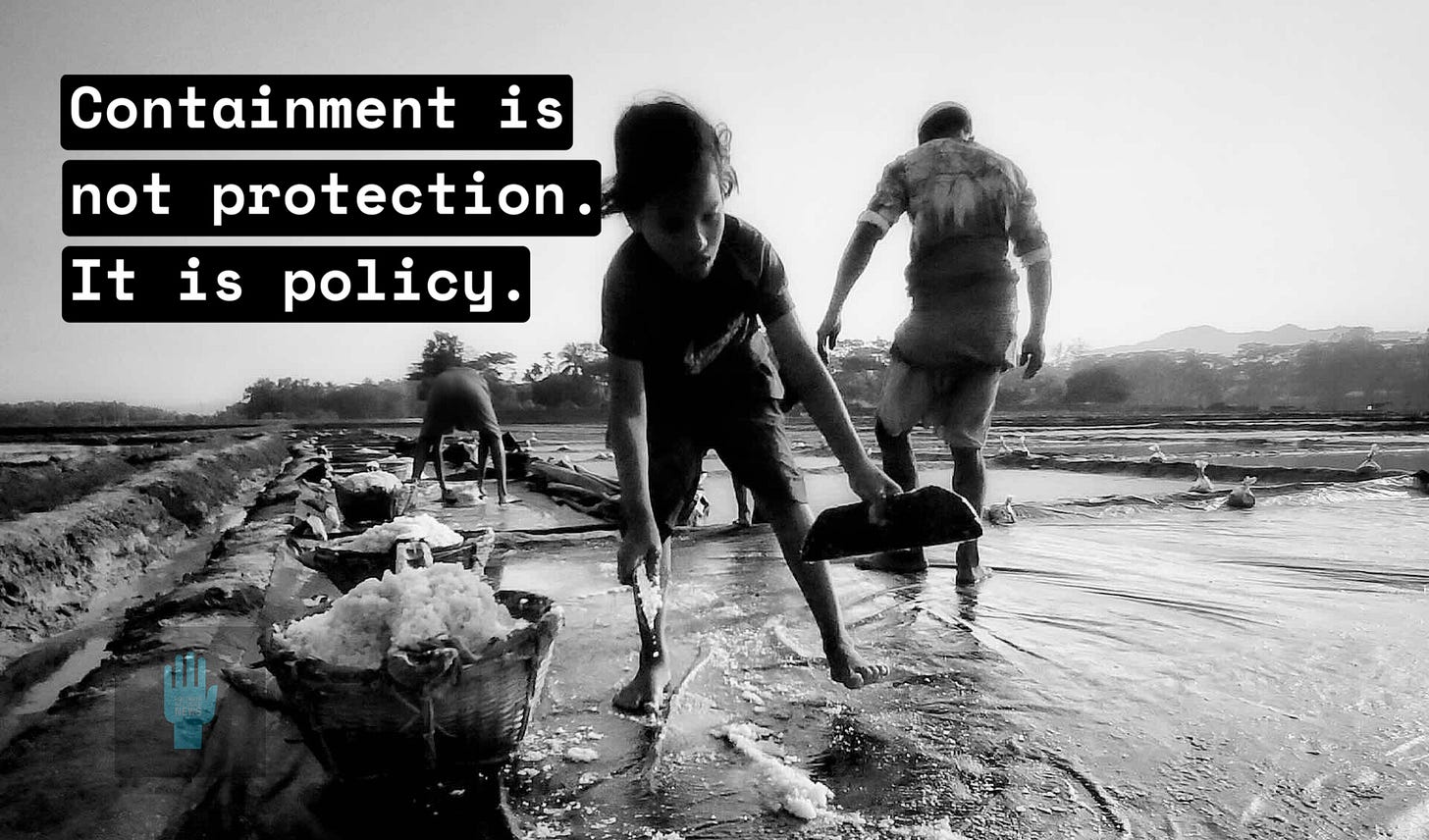How Rohingya Refugee Policy Became Political Capital in Bangladesh
For too long, the story of Rohingya refugees in Bangladesh has been flattened into a morality tale - a poor but generous host, a persecuted people, and a dysfunctional international community. This fiction has obscured the hard truth that Bangladesh has built a political economy around containment, a system that rewards the state for keeping refugees stateless and rightless. The so-called “burden” of hosting the Rohingya is, in reality, a source of diplomatic leverage, political theatre, and economic rent.
In my new essay for CounterpointBD, adapted slightly from a talk I gave at a United Against Inhumanity workshop (held 5 September), I break down how exclusion is not a policy failure. It is, in fact, a design. The aid system and its donors are not bystanders in this; they stabilise the very architecture of repression they claim to resist. Short-term funding, rights-averse programming, secret MOUs and diplomatic timidity have propped up a regime of barbed wire, bureaucratic cruelty, and strategic silence.
It's time to name the cost of this complicity. The essay calls for something bolder - to stop reinforcing dependency and start restoring Rohingya agency. That means development finance linked to rights, not repression. It means dismantling the authoritarian camp system, not beautifying it. And it means holding states, including Bangladesh, accountable for turning human suffering into political capital.
I thank Jeff Crisp and the organisers of UAI for inviting me to speak.
Further Reading →
I take a more extended look at these issues in my Himal essay.


Great writing, and good ideas. Would it even be possible to imagine the international humanitarian nation states according each Burmese-Rohingya refugee dual citizenship? Burmese by birth (pending the resolution of Myanmar’s current political crisis) and Bangladeshi, too, to honor the host country’s honorable intentions towards its neighbors?